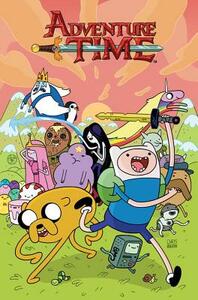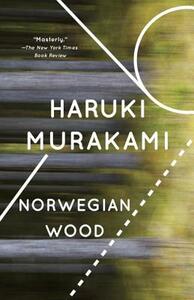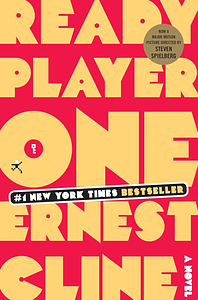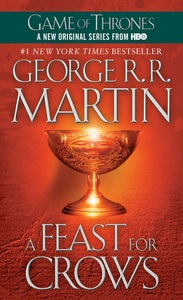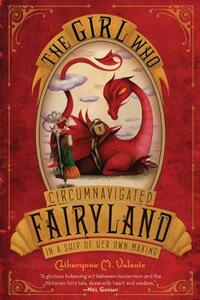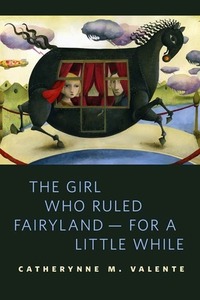Take a photo of a barcode or cover
__ceecee__'s Reviews (414)
I'm pretty sure most of what it's supposed to tell me went over my head. But I can tell there's something great in there. At least it was better, or rather, I enjoyed it more than [b:1984|5470|1984|George Orwell|http://d.gr-assets.com/books/1348990566s/5470.jpg|153313], the latter being more popular, I think, but a bit too familiar after reading WE.
*2.5 stars I'm really sorry I didn't want to delve deeper into it. Maybe one day.
And that concludes my goal of reading the Big Dystopian Threesome. (Although I may have to reread [b:Brave New World|5129|Brave New World|Aldous Huxley|http://d.gr-assets.com/books/1327865608s/5129.jpg|3204877] again because I only read - and loved - the abridged version?)
*2.5 stars I'm really sorry I didn't want to delve deeper into it. Maybe one day.
And that concludes my goal of reading the Big Dystopian Threesome. (Although I may have to reread [b:Brave New World|5129|Brave New World|Aldous Huxley|http://d.gr-assets.com/books/1327865608s/5129.jpg|3204877] again because I only read - and loved - the abridged version?)
Warning:
Suicide Count: 4
Sex Scenes: Well, I didn't count, but there were plenty, and the last one most astounding of all. More on that later.
Not a great way to start off a review, but it's kinder to let you know what you're in for, you know?
This is the first Murakami I've read, and I can't say I'm rushing to read more of his books, but I also can't say that I'll stay away from them. I mean, this novel has become one of my fast faves, yet I'm still wary of reading more Murakami. I always get the feeling I have to be mentally prepared for whatever I'm going to read, because, as Norwegian Wood proved, it really does make one's mind reel.
But it also gives you an onslaught of lovely prose. Idk, I guess I'm just really partial to the kind of melancholy I associate with the Japanese.
Norwegian Wood gets its title from the Beatles song, which is the favorite song of one of the leads, Naoko.
It's also very apt, especially since the first line goes like this
"I once had a girl, or should I say, she once had me..."
This is the story of Toru Watanabe and the people he meets along the way, in the years 1969-70, amidst student revolutions and an ever-growing liberality of the youth. In a way, it's a new adult novel, in which it deals with how adolescents on the verge of adulthood find it difficult to step up to the demands of adulthood. Like I said, there were plenty of suicides in this novel, one, Naoko's boyfriend, and the other, Naoko's sister. Both suicides I think have deeply affected Naoko, and in turn, affected Toru.
Though Naoko and Toru weren't very close growing up, they were bonded by the suicide of their close friend Kizuki. But Naoko is a deeply troubled girl, more than Toru knows. Naoko admits herself to a rehab, and Toru and Naoko continue their relationship through letters.
Meanwhile, Toru befriends Nagasawa, a brilliant but without-conscience guy, together they conquer the nightlife. I love how Murakami presents Toru's one night stands. Especially with that random girl who recently broke up with her boyfriend.
The other one is Midori, my favorite character, for the sole reason that she can say whatever I dare not say to other people. I must admit it's unbelievable that real people talk the way Midori does. I know I've had issues about unrealistic dialogue, but in this one, I'm strangely enchanted by it. Idk, I'm just biased, I guess. Stop reading this review now because I'm really biased.
Some people criticize this for being just a love story. I don't mind it at all. I love love stories. But there are other things, between the lines. Toru must choose between the past and the future. To remain stagnant, or to go on with life.
Which is presented by, the love story! On one hand is Naoko, whom Toru understandably is reluctant to break his bond with, the other, Midori. I put Norwegian Wood on my adorable couples shelf, because Toru and Midori are just so cute, okay? Toru is just better with Midori around.
Which is why I am so astounded by that ending. What could Murakami possibly mean with that ending? Somehow, I get the feeling that I missed something. Which is why I have to read this novel again, in the distant future.
For now, it's enough to say that I enjoyed the prose, and the story.
*4.5 stars In a nutshell it was sad and beautiful and redeeming and wonderful. Except for that bizarre ending (which is like the flaw you have to accept in a person you love).
Suicide Count: 4
Sex Scenes: Well, I didn't count, but there were plenty, and the last one most astounding of all
Spoiler
even more astounding than that lesbian rape sceneNot a great way to start off a review, but it's kinder to let you know what you're in for, you know?
This is the first Murakami I've read, and I can't say I'm rushing to read more of his books, but I also can't say that I'll stay away from them. I mean, this novel has become one of my fast faves, yet I'm still wary of reading more Murakami. I always get the feeling I have to be mentally prepared for whatever I'm going to read, because, as Norwegian Wood proved, it really does make one's mind reel.
But it also gives you an onslaught of lovely prose. Idk, I guess I'm just really partial to the kind of melancholy I associate with the Japanese.
Norwegian Wood gets its title from the Beatles song, which is the favorite song of one of the leads, Naoko.
It's also very apt, especially since the first line goes like this
"I once had a girl, or should I say, she once had me..."
This is the story of Toru Watanabe and the people he meets along the way, in the years 1969-70, amidst student revolutions and an ever-growing liberality of the youth. In a way, it's a new adult novel, in which it deals with how adolescents on the verge of adulthood find it difficult to step up to the demands of adulthood. Like I said, there were plenty of suicides in this novel, one, Naoko's boyfriend, and the other, Naoko's sister. Both suicides I think have deeply affected Naoko, and in turn, affected Toru.
Though Naoko and Toru weren't very close growing up, they were bonded by the suicide of their close friend Kizuki. But Naoko is a deeply troubled girl, more than Toru knows. Naoko admits herself to a rehab, and Toru and Naoko continue their relationship through letters.
Meanwhile, Toru befriends Nagasawa, a brilliant but without-conscience guy, together they conquer the nightlife. I love how Murakami presents Toru's one night stands. Especially with that random girl who recently broke up with her boyfriend.
The other one is Midori, my favorite character, for the sole reason that she can say whatever I dare not say to other people. I must admit it's unbelievable that real people talk the way Midori does. I know I've had issues about unrealistic dialogue, but in this one, I'm strangely enchanted by it. Idk, I'm just biased, I guess. Stop reading this review now because I'm really biased.
Some people criticize this for being just a love story. I don't mind it at all. I love love stories. But there are other things, between the lines. Toru must choose between the past and the future. To remain stagnant, or to go on with life.
Which is presented by, the love story! On one hand is Naoko, whom Toru understandably is reluctant to break his bond with, the other, Midori. I put Norwegian Wood on my adorable couples shelf, because Toru and Midori are just so cute, okay? Toru is just better with Midori around.
Which is why I am so astounded by that ending. What could Murakami possibly mean with that ending?
Spoiler
Could it be that Toru hasn;t fully opened to Midori, yet? That he is still reluctant to choose a progressive life? Why would Toru lie to Midori, saying he and Naoko only slept once? Sure they had intercourse once, but Naoko gave gim blowjobs! And sleeping with Reiko is just so random and WTF-ish.I kind of pity Midori after that.For now, it's enough to say that I enjoyed the prose, and the story.
*4.5 stars In a nutshell it was sad and beautiful and redeeming and wonderful. Except for that bizarre ending (which is like the flaw you have to accept in a person you love).
In a way, this book is better than Dairy Queen. DJ is just amazing. One of the best heroines around.
I just didn't enjoy this book as much as I did Dairy Queen, okay? And it's not because of that heartbreaking ending, I swear. I pretty much understand why it had to end like that. Off Season was heavier about issues, and I had to postpone finishing this a couple of times. My life wasn't exactly happy, and to read Off Season was like adding more to my burdens.
*4 stars
I just didn't enjoy this book as much as I did Dairy Queen, okay? And it's not because of that heartbreaking ending, I swear. I pretty much understand why it had to end like that. Off Season was heavier about issues, and I had to postpone finishing this a couple of times. My life wasn't exactly happy, and to read Off Season was like adding more to my burdens.
*4 stars
"No one in the world gets what they want and that is beautiful."
I'm a 90s kid, so I would have appreciated more if I read about 90s nostalgia porn, like Teenage Mutant Ninja Turtles, or Power Rangers, or Britney Spears or Spice Girls or Goosebumps and Gameboys and Floppy Disks (although, yeah, floppy disks existed in the 80s, too).
Nonetheless, I mostly enjoyed the 80s and sometimes 70s pop culture references, although the only video game I knew was Pac-Man, and I liked the references to Neon Genesis Evangelion and other 80s anime. What can I say? I like reading about pop culture.
In Ready Player One, the world has come to a major decline, but they are still able to support advanced technology like the OASIS, the only thing that keeps people going. Like it says, it's an OASIS, where you can be whatever you want to be and live in a virtual world of your fantasies. AND IT'S FREE. Talk about wish-fulfillment. The OASIS is what we are all still waiting for. After all, they can really play Quidditch there, and we can be witches and wizards or elves and hobbits. You get it. WE NEED THIS THING.
The hero, Wade Watts needs to solve the riddles to get the ultimate prize the creator of OASIS left when he died: To inherit his whole fortune, including the virtual paradise he created. He's competing against corporate bastards who will do everything in their power to seize OASIS and transform it into an ad-infested site where only an elite few can access.
It was pretty slow, sometimes. It was hard to like the way Wade narrated sometimes, because he gives a lot of details without much insight to it. I'm sure name-droppings of past games, consoles and shows are enjoyable to people who actually get it, but to me, I only wanted him to solve the riddle and find the Egg!
Once the tricky beginning and middle parts were over, I was able to enjoy the climax up to its resolution and ending. Believe me, it was a treat, and if they ever make a movie of this, I'm sure I'll watch it. And, because I love a well-made resolution, this book gets 4 stars.
"As terrifying and painful as reality can be, it's also the only place where you can find true happiness."
*3.5 stars And after 2 months I finally finished it. Wasn't really thrilled with the introduction of new POVs, so I guess that's why it took me so long. IMO, this series could need a bit of a trim. It was still enjoyable to read about the world of Westeros and Essos and everything, but if this goes on, I will despair that I won't be able to read the end of this series. And you know how much I need canon, and closure. Now with all these characters, how will Martin ever wrap their storylines up?
Henceforth will be a bit of detailed commentaries on characters/storylines. Spoilers may abound.
The Iron Islands - Not really a fan of pirates, so I didn't enjoy this arc. It was enough in the previous books where the goings-on in the Iron Islands were mentioned in passing, but we still got the general idea. The general idea of it is, they elected their new king via a king's moot, which I thought was a bit similar with the Entmoot in [b:The Two Towers|15241|The Two Towers (The Lord of the Rings, #2)|J.R.R. Tolkien|http://d.gr-assets.com/books/1298415523s/15241.jpg|2963845]. It was an interesting sort of democracy, where they vote according to who offers the most pillages of gold, jewels, etc. Which I thought was not dissimilar to my country's form of democracy.
Anyway, was it really necessary to devote those chapters, just to make the point that these pirates know about Dany's dragons, and Euron has the audacity to think he can make Dany his wife and take her dragons so he can rule Westeros? I am looking forward to how Dany will smash this evil bastard.
Dorne - It was nice to read about Dorne, and Myrcella. But again, it makes the series too damn long. The more characters I know, the more I know how hard it is to read them die.
I am liking how Dorne ties up with Dany, just like with the Iron islands arc. My theory is Quentyn is Daario in disguise. Hopefully I'll know soon, In ADwD.
Cersei - Ugh, she is such a Bitch. I know how some fans like her because she's this woman fighting against the prejudice regardng the female sex,etc etc...but she is evil. She was utterly unlikable. She thinks she's clever when she's not. Basically everything Tyrion says about her is true... Strong female character? Not sure on that one, but she is unmistakably a villain and most likely irredeemable. And btw, Cersei, it's not Margaery who is the young queen you should be wary of, it's that girl Across the Narrow Sea who has three growing dragons! I love how everything comes crashing down on her in the end [of AffC].
Jaime - As much as I like and want the Jaime and Brienne ship to happen, I don't think it will. Jaime's still hung up on Cersei, although that was a nice gesture he did in the end. I am starting to really like Jaime.
Sam - That was confusing with the whole tie in between the Prologue and the last chapter. Did I read all that many chapters just to be in the exact same predicament: Wondering who the hell was that shady alchemist in the prologue?
Btw, congrtas for the sex, Sam, my buddy.
Sansa/Alaynne - I'm starting to think Sansa is the better version of Cersei, both using feminine wiles to survive the game. I have no idea why Sansa is not freaked out by Petyr kissing her - a lot of times! - the pedophile. Although I really like Petyr, he's clever and evil and without conscience but he doen't hide the fact that he's a dick, because he's too damn useful to the Seven Kingdoms. But still, Sansa is pretending to be Petyr's bastard daughter and Petyr, her "father", kisses her! This is some weird shit I guess I'll have to tolerate.
Arya - I suppose it is very fitting that Arya should, in the end, arrive in a place where they worship Death. After all, Arya learns from Syrio Forel that there's only one god: Death; And with Jaqen once again Arya learns the power of Death. It's still surprising that Arya ends up in a temple, though, becoming somewhat a monk or Silent Sister. She ends up in some very unexpected places, but not altogether unpleasant.
Brienne - WHAT. THE. HELL. No, Don't tell me she died. Or that Podrick died. Or even Hyle Hunt, who I was beginning to like, and I was beginning to ship Hyle x Brienne too!
Brienne is supposed to reunite with Jaime! And Podrick should be Tyrion's squire again! *Rolls on the floor in severe tantrum mode*
Henceforth will be a bit of detailed commentaries on characters/storylines. Spoilers may abound.
Spoiler
The Iron Islands - Not really a fan of pirates, so I didn't enjoy this arc. It was enough in the previous books where the goings-on in the Iron Islands were mentioned in passing, but we still got the general idea. The general idea of it is, they elected their new king via a king's moot, which I thought was a bit similar with the Entmoot in [b:The Two Towers|15241|The Two Towers (The Lord of the Rings, #2)|J.R.R. Tolkien|http://d.gr-assets.com/books/1298415523s/15241.jpg|2963845]. It was an interesting sort of democracy, where they vote according to who offers the most pillages of gold, jewels, etc. Which I thought was not dissimilar to my country's form of democracy.
Anyway, was it really necessary to devote those chapters, just to make the point that these pirates know about Dany's dragons, and Euron has the audacity to think he can make Dany his wife and take her dragons so he can rule Westeros? I am looking forward to how Dany will smash this evil bastard.
Dorne - It was nice to read about Dorne, and Myrcella. But again, it makes the series too damn long. The more characters I know, the more I know how hard it is to read them die.
I am liking how Dorne ties up with Dany, just like with the Iron islands arc. My theory is Quentyn is Daario in disguise. Hopefully I'll know soon, In ADwD.
Cersei - Ugh, she is such a Bitch. I know how some fans like her because she's this woman fighting against the prejudice regardng the female sex,etc etc...but she is evil. She was utterly unlikable. She thinks she's clever when she's not. Basically everything Tyrion says about her is true... Strong female character? Not sure on that one, but she is unmistakably a villain and most likely irredeemable. And btw, Cersei, it's not Margaery who is the young queen you should be wary of, it's that girl Across the Narrow Sea who has three growing dragons! I love how everything comes crashing down on her in the end [of AffC].
Jaime - As much as I like and want the Jaime and Brienne ship to happen, I don't think it will. Jaime's still hung up on Cersei, although that was a nice gesture he did in the end. I am starting to really like Jaime.
Sam - That was confusing with the whole tie in between the Prologue and the last chapter. Did I read all that many chapters just to be in the exact same predicament: Wondering who the hell was that shady alchemist in the prologue?
Btw, congrtas for the sex, Sam, my buddy.
Sansa/Alaynne - I'm starting to think Sansa is the better version of Cersei, both using feminine wiles to survive the game. I have no idea why Sansa is not freaked out by Petyr kissing her - a lot of times! - the pedophile. Although I really like Petyr, he's clever and evil and without conscience but he doen't hide the fact that he's a dick, because he's too damn useful to the Seven Kingdoms. But still, Sansa is pretending to be Petyr's bastard daughter and Petyr, her "father", kisses her! This is some weird shit I guess I'll have to tolerate.
Arya - I suppose it is very fitting that Arya should, in the end, arrive in a place where they worship Death. After all, Arya learns from Syrio Forel that there's only one god: Death; And with Jaqen once again Arya learns the power of Death. It's still surprising that Arya ends up in a temple, though, becoming somewhat a monk or Silent Sister. She ends up in some very unexpected places, but not altogether unpleasant.
Brienne - WHAT. THE. HELL. No, Don't tell me she died. Or that Podrick died. Or even Hyle Hunt, who I was beginning to like, and I was beginning to ship Hyle x Brienne too!
Brienne is supposed to reunite with Jaime! And Podrick should be Tyrion's squire again! *Rolls on the floor in severe tantrum mode*
"I understand now," September said ruefully.
"What?" said Saturday.
"What the sign meant. To lose your heart. When I go home, I shall leave mine here, and I don't think I shall ever have it back."
"I will keep it safe for you," Saturday whispered, barely brave enough to say it.
I think my frozen heart melted a little bit.
"What?" said Saturday.
"What the sign meant. To lose your heart. When I go home, I shall leave mine here, and I don't think I shall ever have it back."
"I will keep it safe for you," Saturday whispered, barely brave enough to say it.
I think my frozen heart melted a little bit.
To tell the truth, I wouldn't want to be caught dead reading this book.
"What To Do Until Love Finds You: Getting Ready for Mr Right". Oh, the many things seemingly wrong with that title. Besides, I'm not even religious, and this book is high on the God's purpose thing, and marketed in religious bookshops.
I've been raised in a time of fairytales, where movies have happily ever afters, but I've also been raised in a time when women were encouraged to Go Get What They Deserve. And that Finding True Love Does Not Equal Happiness, aka, You Don't Need A Man To Feel Happy! Which I get, I totally get.
But , idk, I was 18 and hadn't had a romantic experience, and this book had me utterly convinced. The author used true-to-life experiences to show waiting was worth it.
The truth: Waiting sucks. Look at me. I'm an embittered 23-year old who can't stand watching romantic movies.
But I still have really good memories with this book. If I was able to believe this when I was 18, then maybe that 18-year old part of me is still in me, and I don't have to worry that I still haven't met The One yet.
"What To Do Until Love Finds You: Getting Ready for Mr Right". Oh, the many things seemingly wrong with that title. Besides, I'm not even religious, and this book is high on the God's purpose thing, and marketed in religious bookshops.
I've been raised in a time of fairytales, where movies have happily ever afters, but I've also been raised in a time when women were encouraged to Go Get What They Deserve. And that Finding True Love Does Not Equal Happiness, aka, You Don't Need A Man To Feel Happy! Which I get, I totally get.
But , idk, I was 18 and hadn't had a romantic experience, and this book had me utterly convinced. The author used true-to-life experiences to show waiting was worth it.
The truth: Waiting sucks. Look at me. I'm an embittered 23-year old who can't stand watching romantic movies.
But I still have really good memories with this book. If I was able to believe this when I was 18, then maybe that 18-year old part of me is still in me, and I don't have to worry that I still haven't met The One yet.
I do believe this is the second romance GH wrote? Or at least, it was the second published, with the title "The Transformation of Philip Jettan" under the pseudonym Stella Martin, by Mills and Boon in 1923. When it was republished as Powder and Patch in 1930, they left out the original last chapter, which makes me very curious indeed what that original last chapter was. Please let me know what was in that chapter if you find it, dear Reader.
Anyway, I really don't think this is a strong Georgette Heyer. There was little, if ever, of the prosy, yet witty, narrations and dialogues I was used to in Heyer's later works. Since this is one of her earlier works, I suppose this is understandable. However, I did see little glimpses of Heyer here that would show in the novels that I would come to love. Most especially: the steadfast and intelligent male protagonist.
Here's the deal: Philip and Cleone are in love with each other, but Philip is, as they say, a country bumpkin. Everyone agrees that Philip is a good man, but as he is (he is too arrogant in his ways), he cannot be with Cleone. They think Philip needs to strike the balance between a polished gentleman, and the steadfast and honest man that he thinks he is.
After sorely losing in a duel, Philip decides to go to Paris and acquire polish, to show them all. Remarkably, he succeeds, in the space of six months. Which, I have to agree, is really rather unrealistic. How does anyone acquire great sword skills, a great taste for fashion and clothing, and a popular reputation in Paris, all in 6 months?
In any case, Philip did. Cleone, in the meantime, regrets having forced Philip to acquire polish, hears the gossip that Philip fought in a duel in Paris for a French lady. She thinks Philip has changed for the worse. There's no use waiting around for him, so off she goes to London to show Philip she can go on without him, as he so obviously did.
But really, these two people love each other. Philip just wants to know if Cleone loved him for who he is, or the fop she wants him to be.
And then commences a series of misunderstandings, which I think didn't stretch into a melodrama, thank God. Thanks to Wise Elders, and an Intelligent Hero, the misunderstandings were cleared up, and they lived happily ever after.
Many dislike Powder and Patch, I've read, because of Cleone, and mayhaps because of her contradictory nature. For my part, I do sympathize with her. I suppose any woman would like to change something in the man she loves, but Cleone soon regrets this. She was also hurt because she thinks Philip flirted and even fought duels for other ladies. I was a bit surprised though, that she would accuse Philip of having a tarnished reputation.
There was also the instance when Cleone, rejecting Philip, secretly wanted him to master her and overcome her fences. When Philip goes to Cleone's aunt, Lady Malmerstoke, dispenses a bit of eyebrow-raising advise: In a sense: That women do not like gentleness in men, and want them to master women, of all words. Now, I certainly do not want any man to lord over me!
However, Lady Malmerstoke admitted herself that she was not that kind of girl in her younger years, and explained to Philip that girls are very much capable of holding two contradictory thoughts together. Which I think was a funny scene and rang true. I suppose that what she meant was, sometimes, women want men to assert themselves. In Powder and Patch's context, Philip was not really that assertive, he just acted like Cleone was his for the taking and therefore did not make much effort to woo her.
*2.5 stars It was light, funny romance, but I really hate misunderstandings and such. I don't think Powder and Patch was strong. The ending felt a bit of a rush and too neatly tied up, though I was still happy that Philip and Cleone ended up happy together.
Anyway, I really don't think this is a strong Georgette Heyer. There was little, if ever, of the prosy, yet witty, narrations and dialogues I was used to in Heyer's later works. Since this is one of her earlier works, I suppose this is understandable. However, I did see little glimpses of Heyer here that would show in the novels that I would come to love. Most especially: the steadfast and intelligent male protagonist.
Here's the deal: Philip and Cleone are in love with each other, but Philip is, as they say, a country bumpkin. Everyone agrees that Philip is a good man, but as he is (he is too arrogant in his ways), he cannot be with Cleone. They think Philip needs to strike the balance between a polished gentleman, and the steadfast and honest man that he thinks he is.
After sorely losing in a duel, Philip decides to go to Paris and acquire polish, to show them all. Remarkably, he succeeds, in the space of six months. Which, I have to agree, is really rather unrealistic. How does anyone acquire great sword skills, a great taste for fashion and clothing, and a popular reputation in Paris, all in 6 months?
In any case, Philip did. Cleone, in the meantime, regrets having forced Philip to acquire polish, hears the gossip that Philip fought in a duel in Paris for a French lady. She thinks Philip has changed for the worse. There's no use waiting around for him, so off she goes to London to show Philip she can go on without him, as he so obviously did.
But really, these two people love each other. Philip just wants to know if Cleone loved him for who he is, or the fop she wants him to be.
And then commences a series of misunderstandings, which I think didn't stretch into a melodrama, thank God. Thanks to Wise Elders, and an Intelligent Hero, the misunderstandings were cleared up, and they lived happily ever after.
Many dislike Powder and Patch, I've read, because of Cleone, and mayhaps because of her contradictory nature. For my part, I do sympathize with her. I suppose any woman would like to change something in the man she loves, but Cleone soon regrets this. She was also hurt because she thinks Philip flirted and even fought duels for other ladies. I was a bit surprised though, that she would accuse Philip of having a tarnished reputation.
There was also the instance when Cleone, rejecting Philip, secretly wanted him to master her and overcome her fences. When Philip goes to Cleone's aunt, Lady Malmerstoke, dispenses a bit of eyebrow-raising advise: In a sense: That women do not like gentleness in men, and want them to master women, of all words. Now, I certainly do not want any man to lord over me!
However, Lady Malmerstoke admitted herself that she was not that kind of girl in her younger years, and explained to Philip that girls are very much capable of holding two contradictory thoughts together. Which I think was a funny scene and rang true. I suppose that what she meant was, sometimes, women want men to assert themselves. In Powder and Patch's context, Philip was not really that assertive, he just acted like Cleone was his for the taking and therefore did not make much effort to woo her.
*2.5 stars It was light, funny romance, but I really hate misunderstandings and such. I don't think Powder and Patch was strong. The ending felt a bit of a rush and too neatly tied up, though I was still happy that Philip and Cleone ended up happy together.
